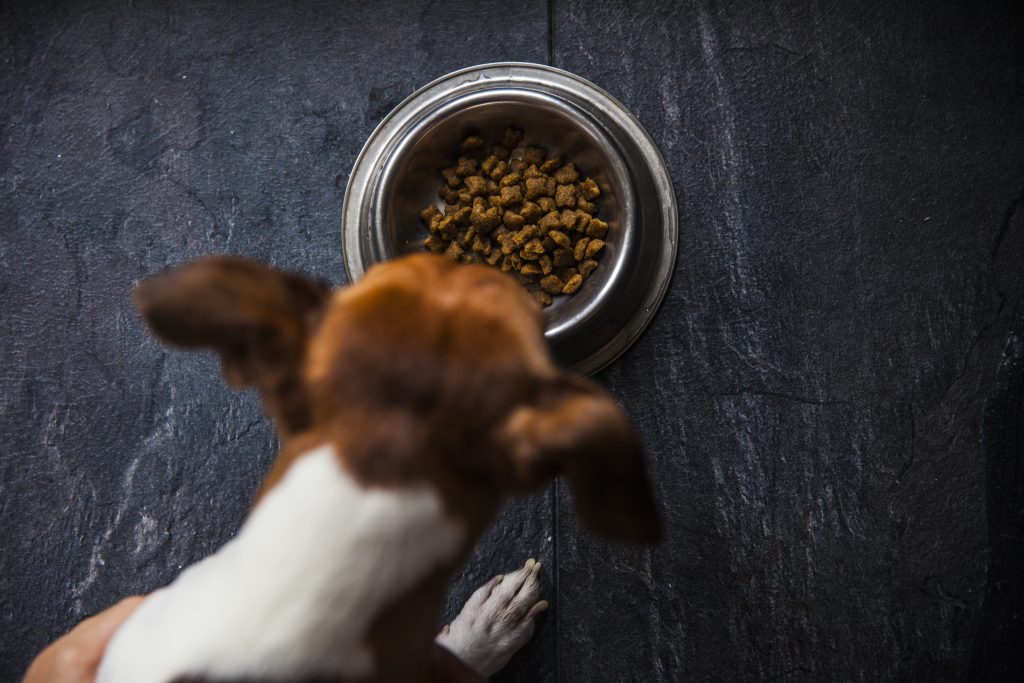Digestive upset is a common complaint of pet owners, including stomach upset, loose stool and not finishing meals. There are many causes of digestive upset, and it is not always easy to discern the root of the problem. Many people wonder if the food their pet is eating is a contributing factor. A common concern that their food might be “too rich.” What most people mean when they say a food could be too rich is that the food may be too high in protein or fat. Is it possible for a dog or cat food to be too high in protein or fat?
In order to understand this, we can look at the nutrient requirements established by the National Research Council (NRC). The NRC analyzes all current scientific research to establish nutrient requirements for animals, including minimum required levels and maximum levels that are not to be exceeded. The NRC has established that there is no upper limit for protein or fat in the diet of cats and dogs that would be deemed inappropriate. Therefore, based on all current scientific evidence, there is no level of protein or fat that would be considered “excessive.” As for carbohydrates, there is no minimum requirement for dogs and cats; the NRC has established that dogs and cats do not require any carbohydrates in their diet.
Dogs and cats are carnivores and appropriate diets contain high levels of animal ingredients. It is true that dogs are somewhat adaptable and can thrive with produce included as a small portion of their diet, but not as main components.
So why do “rich” foods seem to be causing problems for some dogs? These high protein and fat foods are very nutrient dense, meaning there is a lot of nutrition concentrated in the kibbles, and dogs do not need to eat as much of them in order to get everything they need. Most often when dogs exhibit digestive upset when eating these diets, it is because they are eating more than what is necessary.
When feeding nutrient dense foods, it is easy to over-feed by accident. When too many nutrients are given in a meal, the digestive system does not have enough time to sufficiently break down and absorb everything. The majority of fat and protein should be digested and absorbed in the small intestine. When this doesn’t happen, these nutrients pass through to the large intestine and can have detrimental affects on the micro flora population in the gut.
Beneficial microbes in the gut “consume” (ferment) dietary fibre for energy, releasing beneficial fatty acids as by-products of their metabolism. These beneficial bacteria, when supported, out compete “bad” bacteria that also live in the gut, preventing them from becoming pathogenic. When undigested nutrients other than fibre pass into the large intestine, these nutrients feed undesirable populations of bacteria which can release harmful substances as by-products of metabolism.
When the micro flora balance in the gut is disrupted, symptoms include loose stool and intestinal discomfort due to gut lining damage or toxins released by harmful bacteria. Decline in healthy bacteria populations can also lead to compromised immune function, since these bacteria contribute significantly to body defenses.
If you are feeding more than your dog needs, the easy solution is to simply feed less. Even if you are feeding the amount that is suggested on the package, you can reduce the amount. Every dog is different and just like people, some require more food in order to receive proper nutrition, so guidelines have to be a slight over-estimation to make sure dogs are not under nourished. Unfortunately, this can lead to some dogs being over nourished, leading to weight gain or gastrointestinal upset. Dogs should be consuming just enough food to maintain a healthy body weight and support their activity. Excess food intake is detrimental to the health of a dog in a variety of ways and should be prevented.
If you need assistance determining how much to feed your dog, consult the knowledgeable staff at your local Global Pet Foods store.












